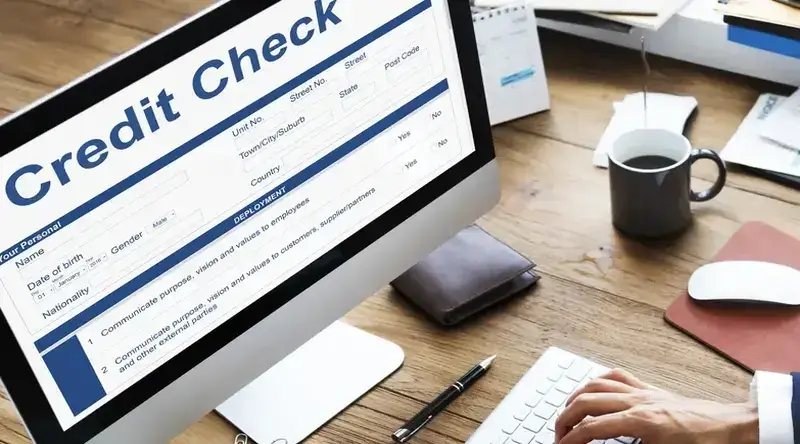What is a Loan Credit Score – How to Improve it.
Understanding what a loan credit score can make a big difference in your financial future. It plays a major role in whether you get approved for a loan, how much you can borrow, and what interest rate you’ll pay. In this blog, we’ll break down what it means, why it matters, and simple steps on how to improve it. Whether you’re planning to apply for a personal loan, car loan, or mortgage, knowing how credit scores work puts you in control.
What is a loan credit score
A loan credit score is a number that reflects your ability to repay borrowed money. It’s what lenders—like banks or online financing companies—use to decide whether to approve your loan, how much to lend you, and at what interest rate. In simple terms, a loan credit score shows how trustworthy you are as a borrower. Loan credit score and general credit score are different. While both terms are often used interchangeably, a loan credit score is specifically used for evaluating your loan applications—such as personal loans, auto loans, or mortgages.
A general credit score may apply to a wider range of financial products, including credit cards or mobile contracts. Both types are based on the same credit data, but lenders may use different scoring models depending on the product you’re applying for.
How is a Loan Credit Score Calculated?
In the Philippines, credit bureaus like TransUnion, CRIF Philippines, and CIBI Information Inc., regulated by the Credit Information Corporation (CIC), collect and analyze your financial data to calculate your credit score. Here’s how your loan credit score is typically calculated:
- Payment History
Paying debts promptly builds a healthy loan credit score. Missed deadlines, unsettled balances, or financial setbacks like bankruptcy can weaken your credit profile. - Credit Utilization
This measures the ratio of your current credit usage to your total available credit. Maintaining a low utilization rate indicates responsible credit management. - Length of Credit History
The duration of your credit accounts matters. Having an extended credit history gives lenders a clearer view of your borrowing habits, which can help improve your loan credit score over time. - New Credit Inquiries
Frequent applications for new credit can suggest financial instability. Each application results in a hard inquiry, which may slightly lower your score. - Credit Mix
Managing various types of credit—like credit cards, loans, and mortgages—shows lenders that you can handle different financial obligations, which can boost your loan credit score.
What is Good Credit Score
In the Philippines, credit scores typically fall within the range of 300 to 850. While there is no universal standard used by all lenders, many financial institutions refer to this range as a general guideline. Keep in mind that credit score criteria may vary between lenders, so the following is commonly used for reference purposes only.
- 750 – 850: Excellent – High approval chances, low interest rates
- 700 – 749: Very Good – Viewed positively by most banks
- 650 – 699: Good – Likely to get approved, but with stricter terms
- 600 – 649: Fair – May face higher interest or limited loan options
- 300 – 599: Poor – Unlikely to be approved without a co-signer or collateral
How to Improve Loan Credit Score
- Always Pay Loans and Bills on Time
Consistently paying your loans, credit cards, and utility bills on or before the due date is the most important step. A late payment can have a negative impact on your score. Set reminders or use auto-payment features to stay on track. - Use Credit Responsibly
Only borrow what you can repay. If you have a credit card, keep your credit utilization ratio low—ideally below 30% of your credit limit. This tells lenders that you’re not overextending yourself financially. - Avoid Multiple Loan Applications at Once
Each loan or credit card application may be recorded as a hard inquiry on your credit report.Having a lot of inquiries at the same time can lower your score. Apply only when necessary and space them out. - Keep Your Old Credit Accounts Open
The length of your credit history can impact your credit score. Maintaining older credit accounts—even if you rarely use them—can be beneficial, as it reflects a longer, more consistent credit background. - Check Your Credit Report for Errors
In the Philippines, you can request your credit report from the Credit Information Corporation (CIC) or accredited credit bureaus like CIBI, TransUnion, or CRIF. Check for errors and request corrections if necessary. Even minor mistakes can affect your credit standing. Learn more or request your credit report from CIC’s official website. - Start Establishing Credit if You’re New to It
If you’re new to credit, start with a secured credit card or a small personal loan from a reputable lender. Make timely payments to build a strong credit history gradually. - Limit Unsecured Debts
Too much unsecured debt like credit card balances or payday loans can hurt your score. Try to consolidate your debt or pay off high-interest accounts first.
Understanding your credit score is essential for anyone planning to apply for credit or financing. By following smart financial practices, you can take control of your credit health. Simple steps like paying on time, minimizing debt, and reviewing your report regularly are key to boosting your credit standing. A stronger loan credit score leads to better loan terms and more financial opportunities.
You think you have a good credit score? Apply for a loan now!







